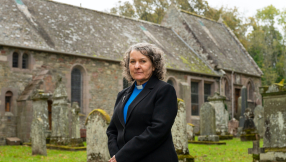Poor countries not prepared for swine flu
The London School of Hygiene and Tropical Medicine (LSHTM) said that the outbreak of the disease was “a test for global solidarity”, and added that middle and lower income countries were not highly prepared for the virus.
UN Secretary-General Ban Ki-moon said, “Poorer nations are especially vulnerable ... We must ensure that they are not hit disproportionately hard by a potential health crisis.”
On Wednesday Tamiflu manufacturer Roche said that it was working with governments and the World Health Organisation (WHO) to make the drug more widely available.
Amextra, a group partnered with development charity Tearfund, is working in Mexico, where the virus started, by handing out dietary supplements, face masks, soap and bleach to poor communities. Around 55 million people in Mexico are believed to live in poverty, with 22 million in extreme poverty.
Tearfund currently has a three person team in the “squatter settlement” of Lomas de San Isidro.
Abby King, a Tearfund spokeswoman, said of the team, “We’re getting them to restrict their movement at the moment, and stay close to their base, and to take precautions over basic hygiene … We would bring them back if it was the safest thing to do, but there are obvious health risks associated with travelling back to the UK.”
In Mexico City, churches suspended their services on Sunday and for the first time in almost 160 years a statue of the Christ of Health was carried through the streets. Mexico’s bishops have called on people to show their solidarity with those infected with the virus and not to panic.
There are five confirmed cases of the virus in the UK so far. The Government said it has enough antivirals for 33 million people but is looking to increase that amount as well as stock more face masks.
The Catholic Diocese of Lancashire is considering whether to halt Holy Communion and Mass at its churches in a bid to stop the spread of the virus.
Patrick O’Donoghue, the Bishop of Lancaster, has stipulated that an emergency plan made during the bird flu outbreak three years ago will be updated and sent to priests.
With the spread of the virus to the USA, the Episcopal Church there is providing information about how to prepare for a pandemic, as well as advice on pastoral care, liturgy and spiritual practice.
Abigail Nelson, from the Episcopal Relief and Development Agency, said, “It is our hope that by pre-paring for the possibility of an influenza pandemic, the Episcopal community will be better able to protect each other and serve those in need,” reports Church Times.
Included in the guidance is advice that groups consider whether their usual activities might contribute to the spread of the disease.













